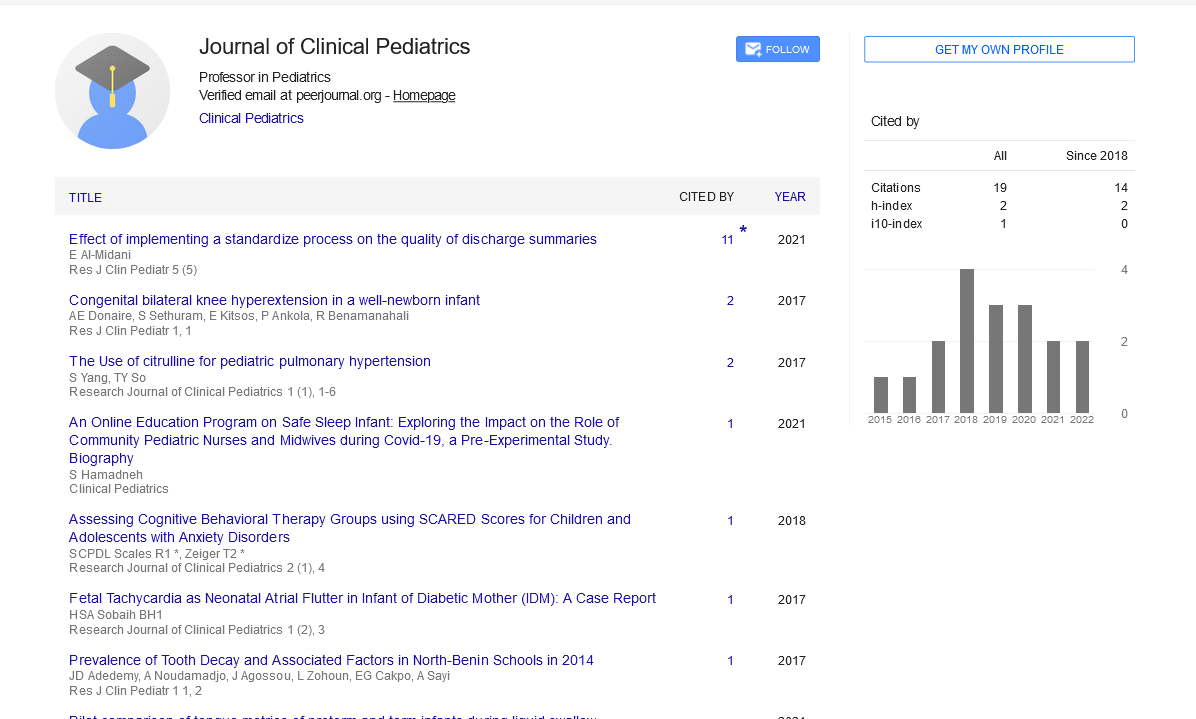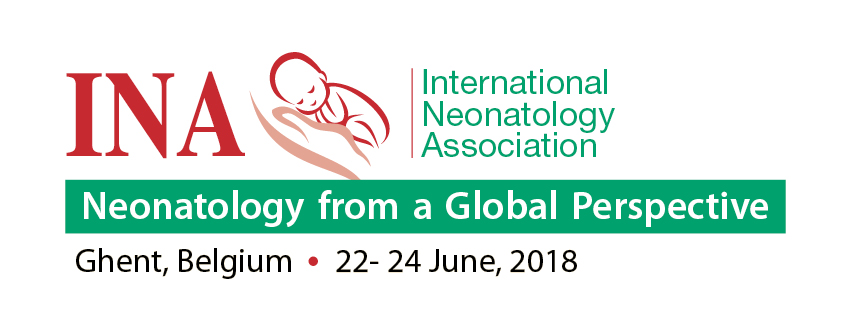Perspective, Res J Clin Pediatr Vol: 7 Issue: 1
Neuronal Network Development in the Brain
Johnny Wang*
1Department of Pediatrics, Cabrini University, 610 King of Prussia Road, Radnor, PA 19087, United States
*Corresponding Author: Johnny Wang
Department of Pediatrics, Cabrini
University, 610 King of Prussia Road, Radnor, PA 19087, United States
E-mail: jho891@gatech.edu
Received date: 16 February, 2023, Manuscript No. RJCP-23-96132;
Editor assigned date: 20 February, 2023, PreQC No. RJCP-23-96132 (PQ);
Reviewed date: 10 March, 2023, QC No. RJCP-23-96132;
Revised date: 17 April, 2022, Manuscript No. RJCP-23-96132 (R);
Published date: 24 April, 2023, DOI: 10.4172/Rjcp.1000134
Citation: Wang J (2023) Neurodevelopment: The Critical Window of Brain Development. Res J Clin Pediatr 7:1.
Description
The brain is the most complex organ in the human body, and its development is a complex process that begins at conception and continues throughout life. During this period, the brain undergoes significant structural and functional changes, which are essential for the development of cognitive, emotional, and social abilities. This manuscript provides an overview of the process of neurodevelopment, focusing on the critical window of brain development, and its implications for human health and well-being.
The human brain is the control center of the body, responsible for all our thoughts, emotions, and actions. The process of brain development is a complex and intricate one, involving the growth and maturation of neural cells and the establishment of functional connections between them. The neurodevelopmental process is critical for the development of human cognition, behavior, and social skills. This process begins during fetal development and continues through childhood, adolescence, and into early adulthood, with each stage characterized by unique developmental milestones.
The critical window of brain development
The early years of life are a critical window for brain development. During this time, the brain is highly responsive to environmental stimuli, and experiences can have a profound impact on its development. Research has shown that experiences during this critical window can shape the structure and function of the brain, influencing everything from language development to social skills and emotional regulation.
The first few years of life are particularly crucial, as the brain is rapidly developing during this time. By the age of three, the brain has reached 80% of its adult size, and by the age of six, it has reached 90%. During this time, the brain is highly malleable and responsive to environmental experiences. Positive experiences, such as nurturing and responsive caregiving, can promote healthy brain development, while negative experiences, such as neglect or abuse, can have lasting effects on brain function.
The importance of early childhood education
Early childhood education can play a crucial role in promoting healthy brain development. Research has shown that high quality early childhood education programs can have a positive impact on cognitive, social, and emotional development. These programs provide children with opportunities for positive experiences, such as social interactions with peers and adults, and access to stimulating learning environments.
In addition, early childhood education programs can also provide children with the support they need to develop strong self-regulation skills, which are critical for success in school and life. These skills include the ability to focus attention, regulate emotions, and control behavior. Children who develop these skills in early childhood are more likely to succeed academically and socially, and are less likely to experience negative outcomes, such as behavioral problems or school failure.
Conclusion
Neurodevelopment is a complex and critical process that shapes the course of human development. The early years of life are a particularly crucial time, as the brain is highly responsive to environmental experiences during this period. Positive experiences, such as nurturing and responsive caregiving, can promote healthy brain development, while negative experiences, such as neglect or abuse, can have lasting effects on brain function. Early childhood education programs can play a crucial role in promoting healthy brain development, providing children with opportunities for positive experiences and the support they need to develop strong selfregulation skills. Investing in early childhood education is essential for promoting healthy brain development and ensuring the future success of our children and society.
 Spanish
Spanish  Chinese
Chinese  Russian
Russian  German
German  French
French  Japanese
Japanese  Portuguese
Portuguese  Hindi
Hindi 
